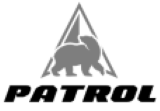Exploring cities on a budget can be exciting when you find creative places to stay. However, parking your camper in urban areas for overnight stays comes with risks that many people don’t consider. From legal troubles to safety concerns, the dangers associated with urban stealth camping can turn your adventure into a nightmare if you’re unprepared.
This guide reveals the most common hazards you’ll face and includes ways to help you camp safely in these environments.
Legal Issues and Parking Violations
Many cities have strict laws against overnight parking in residential areas or commercial districts. Police officers regularly patrol these zones, especially during late hours. Getting caught can result in hefty fines ranging from $50 to $500, depending on your location.
Some municipalities classify overnight vehicle camping as vagrancy, which carries more serious consequences. You might face court appearances, vehicle impoundment, or even arrest in extreme cases. Familiarize yourself with local ordinances before settling in, and always have backup locations ready.
Safety Concerns in Urban Areas
Cities present unique safety challenges that differ from traditional camping environments. Crime rates tend to be higher in urban areas, particularly in industrial zones where stealth campers often park. Theft, vandalism, and personal attacks become more likely when you’re isolated in a vehicle.
Poor lighting in parking areas is another risk. You might struggle to see potential hazards or threatening individuals approaching your vehicle. Always choose well-lit locations with good visibility in all directions.
Limited Access to Clean Water and Sanitation
Finding clean water sources in urban environments can be challenging if your vehicle doesn’t have a bathroom. Public facilities often close after business hours, which creates hygiene problems that can lead to illness or discomfort during your stay.
Some stealth campers resort to questionable water sources, which can cause stomach issues or infections. Gas stations and 24-hour businesses sometimes restrict restroom access to paying customers only. Plan your water and sanitation needs carefully before choosing a campground.
Noise Pollution and Sleep Disruption
Urban environments never truly quiet down. Traffic noise, construction work, sirens, and late-night foot traffic can severely affect your sleep quality. Poor sleep can make it difficult to focus and drive safely the following day.
Industrial areas might seem quieter initially, but they often experience early-morning truck deliveries or loud machinery. Residential neighborhoods can be noisy, with barking dogs or late-night parties. Consider investing in quality earplugs or white noise machines to improve your rest.
Air Quality Problems

City air has higher levels of pollutants than rural camping areas. Vehicle exhaust, industrial emissions, and smog can worsen respiratory conditions or cause headaches. Parking near busy roads exposes you to concentrated pollution levels.
Poor ventilation in vehicles can trap these pollutants inside your living space. Pollutant exposure becomes particularly problematic during hot weather when you need to keep windows closed for security reasons.
Temperature Regulation Challenges
Urban heat islands make cities considerably warmer than surrounding areas. Concrete and asphalt absorb heat and release it at night, creating uncomfortable sleeping conditions. Your vehicle can become dangerously hot without proper ventilation.
Winter camping in cities can lead to the opposite problem. When cold temperatures mix with humidity, it creates condensation inside your vehicle and uncomfortable dampness. Urban wind tunnels between buildings can also make temperatures feel much colder than actual readings.
Limited Privacy and Security
Urban stealth camping offers little privacy compared to traditional campgrounds. Curious passersby might investigate your vehicle, knock on doors, or even call authorities. This constant potential for interruption creates stress and prevents relaxation.
Security becomes a major concern when you can’t see your surroundings clearly. Parked cars and infrastructure create blind spots where threats can approach undetected. You might feel vulnerable sleeping in an unfamiliar urban environment without the natural barriers that camping in the wilderness provides.
Potential Vehicle Damage

City streets can be hard on vehicles. Potholes, construction debris, and tight parking spaces increase the risk of damage. Urban vandalism also poses a threat, with graffiti, broken windows, or slashed tires becoming common problems.
Congested traffic can also make it easier for minor accidents to happen, such as scratches and dents, especially during rush hour. Poorly maintained roads are known to wear out tires and suspension systems.
Social Conflicts and Confrontations
Not everyone welcomes stealth campers in their neighborhoods. Residents might feel threatened by unknown vehicles parked on their streets overnight. Your presence could lead to confrontations, harassment, or calls to law enforcement.
Business owners sometimes become hostile toward overnight campers, especially if they perceive you as loitering or affecting their customer base. Conflicts can escalate quickly and put you in dangerous situations. Maintaining a low profile and respecting local communities can minimize these risks.
Health Risks From Poor Hygiene
The dangers associated with urban stealth camping include serious health risks from inadequate hygiene facilities. Limited access to showers and proper waste disposal can create digestive issues and other health problems.
Food storage becomes challenging in urban environments, where temperatures fluctuate and refrigeration options are limited. Spoiled food poses health hazards, and improper waste management can draw pests and make the area around your vehicle unsanitary.
Insect and Pest Problems
Speaking of pests, urban environments are home to different pests than wilderness areas. Rats, cockroaches, and other urban insects can invade your vehicle if you’re not careful with food storage and waste management. These pests carry diseases and can contaminate your living space.
The Bug Wall offers specialized products, like van mosquito nets, designed to keep insects out of your vehicle while regulating airflow. Pest prevention becomes essential when camping in areas with high insect populations.
Protect Yourself When Camping
Understanding these risks helps you make informed decisions about urban stealth camping. When you’re aware of local laws and regulations before going to new cities, you can travel more freely.
Invest in quality safety equipment, including door locks and window coverings. Choose your parking locations carefully, prioritizing well-lit areas with good visibility and legal overnight parking. Don’t forget to plan for basic needs like water, sanitation, and emergency supplies before you need them.
Urban stealth camping can be rewarding when done safely and responsibly. By acknowledging these hazards and taking the right precautions, you can enjoy city adventures while minimizing risks. The Bug Wall provides excellent products to make your experience more comforting and private!








